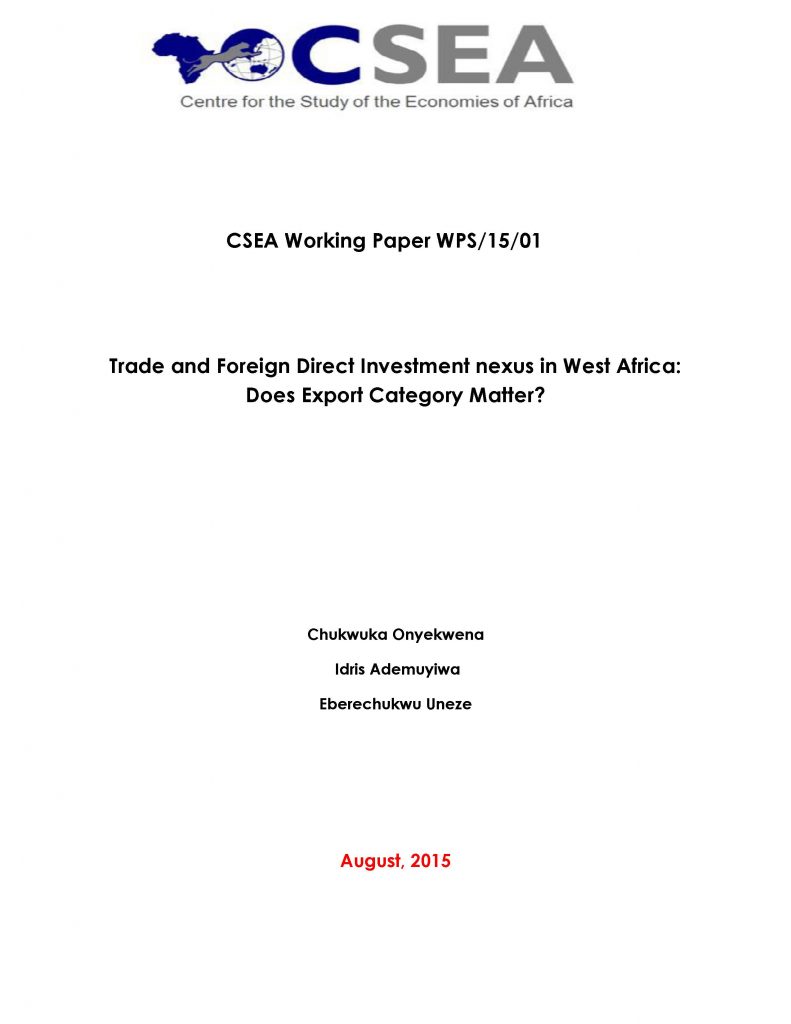Trade and Foreign Direct Investments are the key
divers of economic integration and the globalization process. The widely held
view is that both trade and FDI are beneficial, as the former can stimulate
innovation, productivity, competitiveness, and diversification; and the latter
increases the capital stock, provides new job opportunities, and promotes the
transfer of technology. Thus there have been profound calls within
international organizations for developing countries to encourage both trade
and FDI in order achieve robust economic growth and development. However, critics argue that trade, particularly imports, can
create undue competition and stifle indigenous manufacturing; and inward FDI
can also displace domestic firms. Similarly, from a source country perspective,
outward FDI can lead to loss of jobs as multinationals move job opportunities
overseas
Publications

January 22, 2016
Trade And Foreign Direct Investment Nexus In West Africa: Does Export Category Matter?
This paper examines the effect of inward FDI in
West Africa on exports to EU countries. It investigates from a host country
perspective, the impact of FDI on different export categories: primary,
intermediate, and final goods.
Related
Nigeria Economic Update (Issue 28)
Nigeria Economic Update (Issue 35)
Nigeria's Real Gross Domestic Product (GDP) increased at an annual rate of 0.55 percent in 2017Q21, compared to the -0.91 percent (revised) in 2017Q1 indicating the first quarterly positive growth rate since 2016Q1 and an evidenced exit from five quarters of economic recession. The acceleration in real GDP in 2017Q2 reflects the significant increase in oil sector GDP from -11.64 percent in 2017Q1, to 1.64 percent in 2017Q2 a 13.3 percentage points Quarter-on-Quarter increase. However, Non-oil GDP moderated by 0.3 percentage points to 0.45 percent. Despite the recent favorable economic performance, growth prospect remains fragile.
